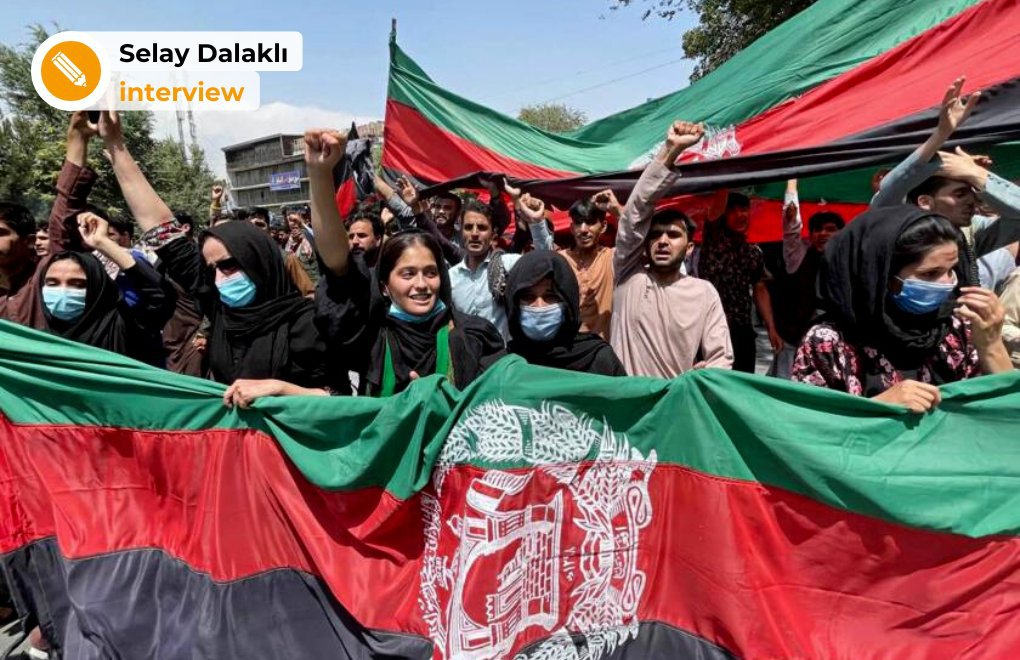* Photos: Anadolu Agency (AA) - File
Click to read the article in Turkish
In the war that began with Russia's invasion of Ukraine, Germany has emerged as one of the most debated countries - of course, after Russia.
We see that the country is facing criticism for a series of issues such as its refraining from imposing an energy embargo on Russia, on which it is dependent for natural gas by 55 percent and for oil by 34 percent, and the close relations maintained with the country by top politicians, including the current President, by "misjudging" Russia's President Vladimir Putin.
All these debates aside, several citizens in Germany have been voluntarily helping the people displaced from Ukraine for weeks now.
Living in the capital city of Berlin, Anna Weissenborn is one of them.
Anna studies sociology at Humboldt University in Berlin; she also works as a student assistant at the same university.
"With the first people from Ukraine arriving in Berlin and the media reporting about it, it became clear that the organizing structures needed more help from volunteers," says Anna. And she, "as a young student, felt responsible for this and decided to support the team of coordinators regarding the displaced people from Ukraine at the Central Station in Berlin."
About the people displaced from Ukraine
* Several refugees arrive in Berlin Main Train Station (Credit: Pexels) According to the official data of the United Nations Refugee Agency (UNHCR), since the war broke out on February 24, 5 million 85 thousand 360 people have fled Ukraine and taken refuge in other countries. The latest figures shared by Germany's police have shown that around 320 thousand Ukrainian refugees have arrived in Germany since the war began. However, the real number is estimated to be higher. |
We have arrived in Berlin and now?
According to the webpage created by the Berlin Senate to inform the refugees from Ukraine, people who had to flee Ukraine are allowed to enter Germany without a visa, which applies both to citizens of Ukraine and to people of other nationalities who were in Ukraine on February 24 and fled. This rule will be in effect throughout Germany, initially until August 31, 2022.
As Ukrainian refugees can receive "war refugee" status, an asylum application is not considered necessary for them.
Let's say we have arrived in Berlin Main Train Station like several other people displaced from Ukraine. What will happen now?
According to the Senate, if a person is not being picked up by friends or family, they are expected to first go to the "Welcome Hall Berlin" arrival tent.
Let's listen to Anna for the rest:
"Arriving at the central train station, every person has several possibilities to meet their personal needs.
"There is a desk for general information about asylum, accommodation or others; food and drinks are offered; there is a child's corner, hygiene station, medical station, or a desk where one could find further connections to another city by train or bus. If they decided to stay in Berlin, there were buses which took them directly to the emergency shelter."
As for the ones who have not found permanent housing and need support, they are expected to first report to the Arrival Center at Tegel Airport, where refugees may be distributed among the federal states.
'Briefing' against discrimination
And what struck or moved Anna the most in this whole process?
"It moved me most to see the exhaustion and restlessness in the faces of the people arriving here in Berlin," she says, adding:
"For them, the situation has always been of great uncertainty. Where to go next, where to spend the night, when or if they might be able to return?
"It helped me a lot to see the network of volunteers, which made sure of the personal mental health and offered support for anyone struggling with the situation."
In the meanwhile, as if the horror of the war itself was not enough, we have been reading news regarding the discrimination faced by refugees since the outbreak of the war. It was just last week when it was reported in the press that Romani refugees were not let in Czechia.
But what about Berlin? Do similar things happen there as well? Are any measures taken to prevent similar incidents?
According to what Anna says, "before helping as a volunteer, one must participate in a briefing, in which the equality and non-discrimination of any people arriving in Berlin is pointed out."
There are also "multiple help desks for People of Color or LGBTQI+ refugees with volunteers whom they can ask for support."
Germany from 2015 to 2022
We also ask Anna about the conditions of accommodation offered to the refugees from Ukraine in Berlin.
Anna says that most of the displaced people were "accommodated in official shelters provided by the Berlin senate. But after about 2 weeks, they were at full capacity and could not accommodate more people."
In the meantime, the people of Berlin could offer their flats or a room in their flats for Ukrainians to stay through several platforms. "To my knowledge, one can get financial support from the senate if one offers their housing to Ukrainian people, if they are already registered."
The federal government of Germany is also preparing to provide the states with 2 billion Euro for "accommodating and integrating Ukrainian refugees". As reported by DW, 500 million Euro will be offered to cover the costs incurred to date, 500 million for accommodation in the coming months and 1 billion is to help with schooling and daycare centers.
It is estimated that around 40 thousand young Ukrainians have started taking classes at schools in Germany, including vocational schools.
According to the statement of Germany's Transport Minister Volker Missing dated April 16, the federal government does not foresee an "upper limit" for the number of refugees it accepts fleeing Ukraine; he says, "Germany cannot and will not turn back any refugees from Ukraine."
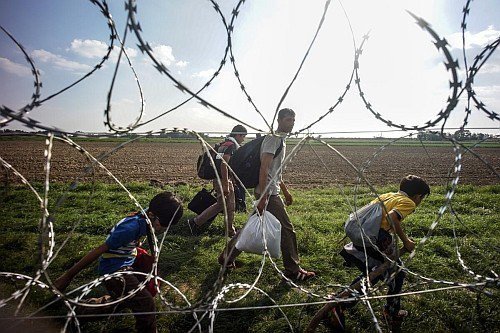
* Refugees on the Serbia - Hungary border in 2015. Credit: bianet - File
When one reads these news reports one after the other, one cannot help remembering what happened in Europe some 7 years ago.
Just to refresh our memories... In 2015, over a million refugees, mostly fleeing the conflicts in Syria, Afghanistan and Iraq, arrived in Europe; but thousands of them were stranded in the train station of Budapest, the capital city of Hungary, as the country closed its borders.
In response, the then Chancellor of Germany Angela Merkel called the then Chancellor of Austria Werner Faymann; both countries opened their borders in September 2015. What happened at that time has come to be associated with Merkel's remark "We can do it" (Wir schaffen das).
It is not yet known whether Germany "has done it", but some migration analysts have already been pointing out the "double standard" by comparing how the refugees in 2015-2016 and now are treated.
'Years ago, they seemed to care less'
When we ask Anna how she thinks Berlin has handled the past two months, she says, "I personally think that Berlin at least learned from the wave of refugees arriving in Germany in 2015/2016."
She adds, "Especially with shorter and more easy ways of registration, they managed to offer social services to the displaced people in Berlin."
And does Anna see any differences between how the refugees were treated and perceived in Germany 7 years ago and how they are treated and perceived now? She answers our question in following words:
"In my opinion, the situation for Ukrainian refugees arriving in Berlin in the last months is much better than for Syrian people in 2015/2016. The process of getting asylum or access to social services became much more efficient.
"At the same time, it is shocking to me to realize the great consternation of German people regarding the war in Ukraine and its consequences, when a few years ago they seemed to care so much less.
"In both cases, then and now, people are leaving their home countries to secure their own lives; so, why is it that the situation of Syrians arriving here in Germany has not caused as much empathy, awareness, and helpfulness?
"I think one cannot ignore the thought that the different treating of Ukrainians versus Syrians is based on discrimination and racist thoughts.
"Other than in 2016, nobody speaks about the fear of including refugees in our society, but it is mostly pointed out that we share much more values with the Ukrainian society."
Right to seek asylum is a basic human right
Whether there is indeed a "double standard" in terms of the treatment faced by the people who fled war and persecution and sought refuge in Europe at different times over the years as alleged is undoubtedly an issue to be discussed at length in a much more comprehensive article.
For instance, Stanford immigration policy scholar David Laitin says, "Millions of Ukrainians are living in unimaginable terror; but thankfully the country's refugees will face a more accommodating Europe than did those who sought similar protection a decade earlier."
Noting that "the 2014-15 asylees from Syria and North Africa were mostly Muslim", Laitin says that they "faced higher degrees of discrimination than will the Ukrainians, who are largely of Christian heritage."
On the other side, the experts that Markus Ziener from the LA times refers to note that "proximity of a war only a few hundred miles away will likely make a difference." Ziener says, "Some migration analysts criticize what appears to be a double standard but acknowledge that cultural and religious similarities may play an added role in the degree of acceptance."
Then, what is left for us to do is to conclude this article, where we try to offer an insight into the conditions of Ukrainian refugees in Berlin from afar, with a quote from the Universal Declaration of Human Rights, which is considered to be the "constitution of human rights" - so to speak.
Article 14 of the Declaration reads:
Everyone has the right to seek and to enjoy in other countries asylum from persecution.
(SD)





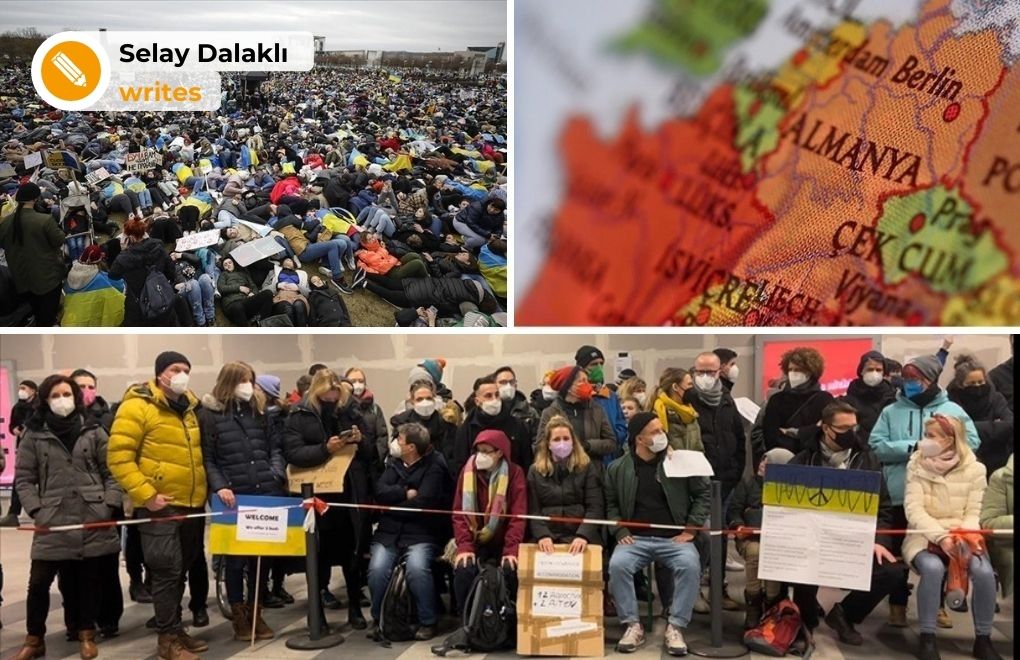
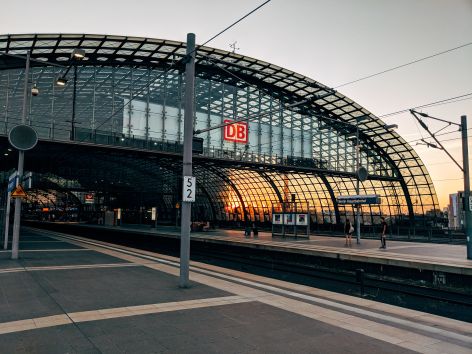
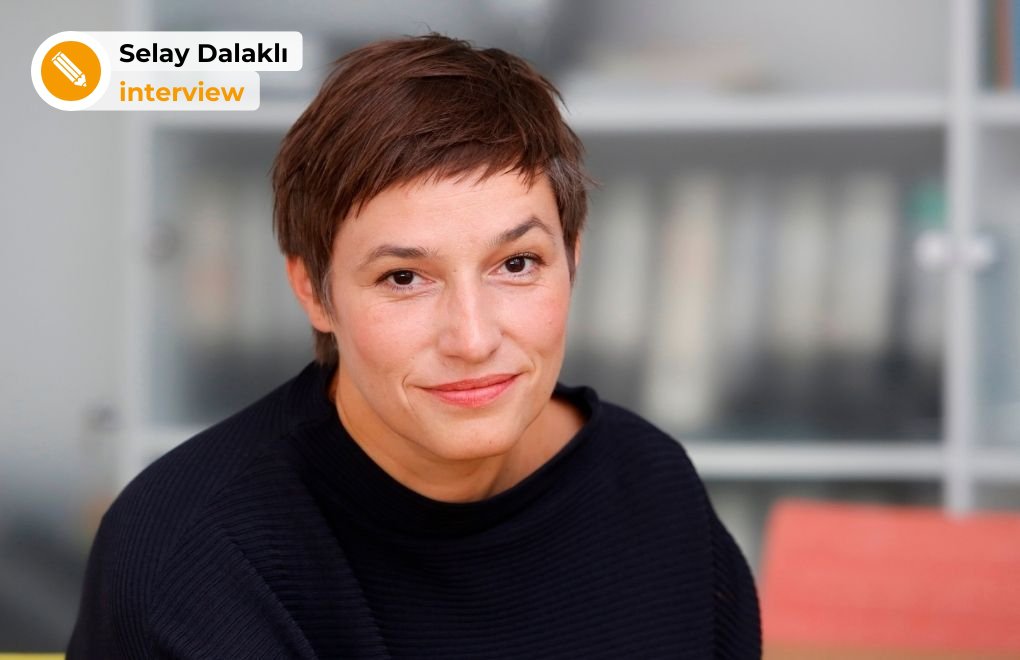
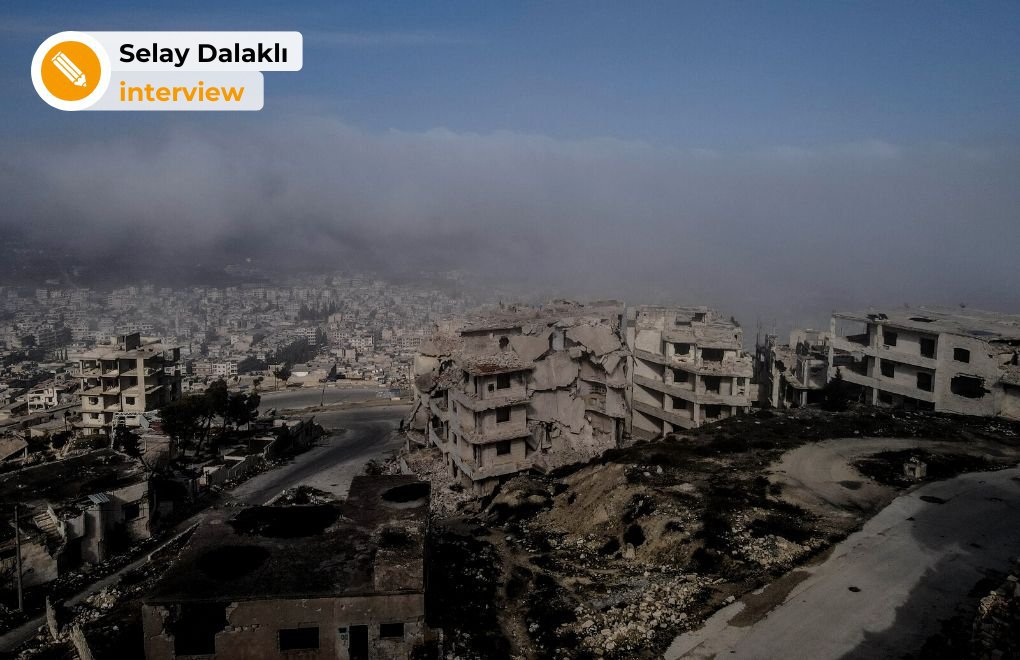
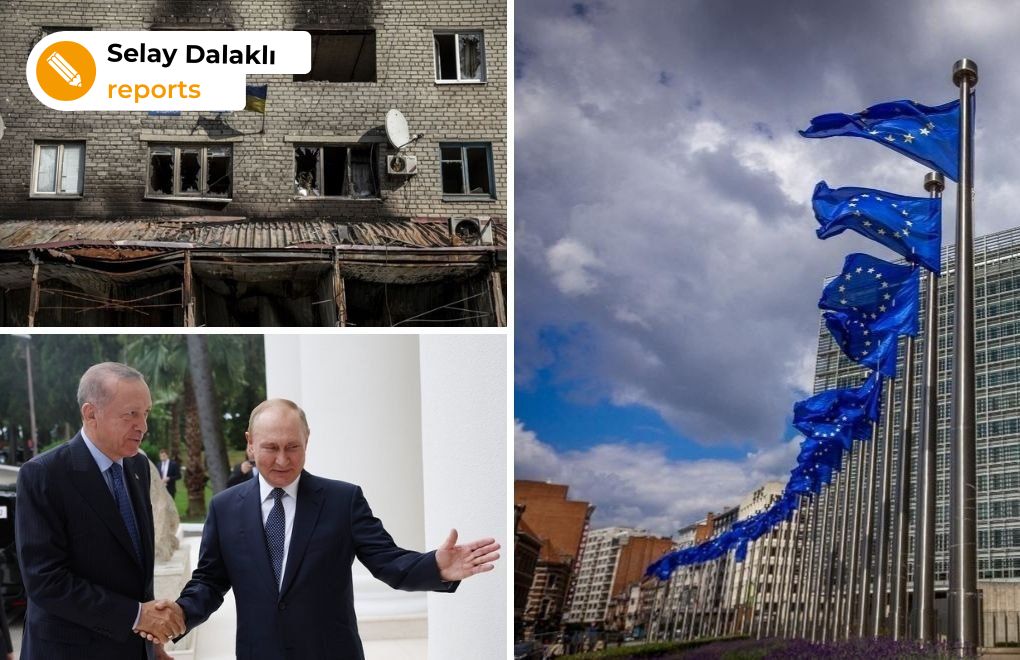
.jpg)
